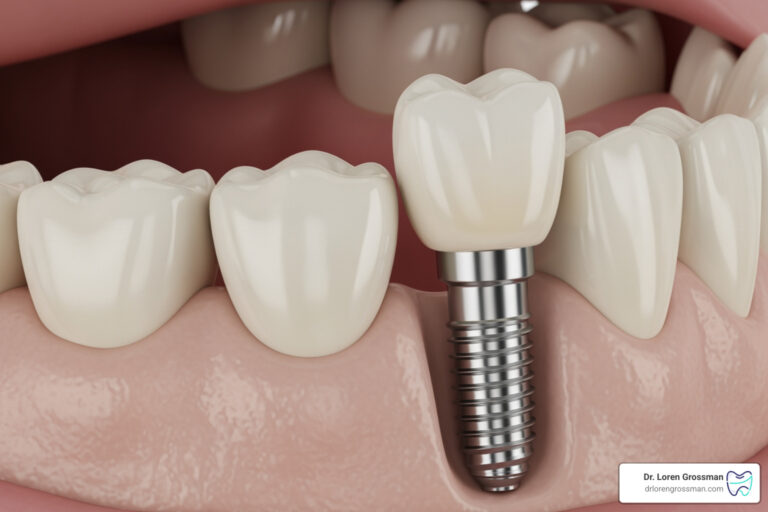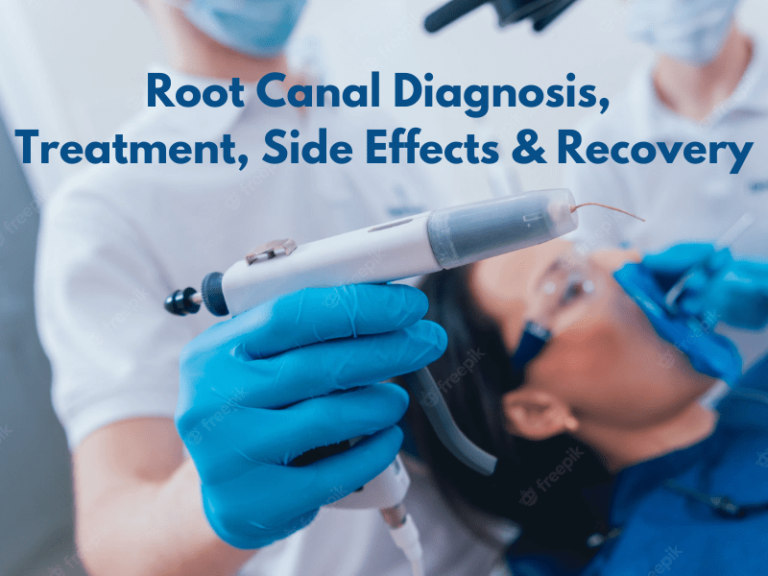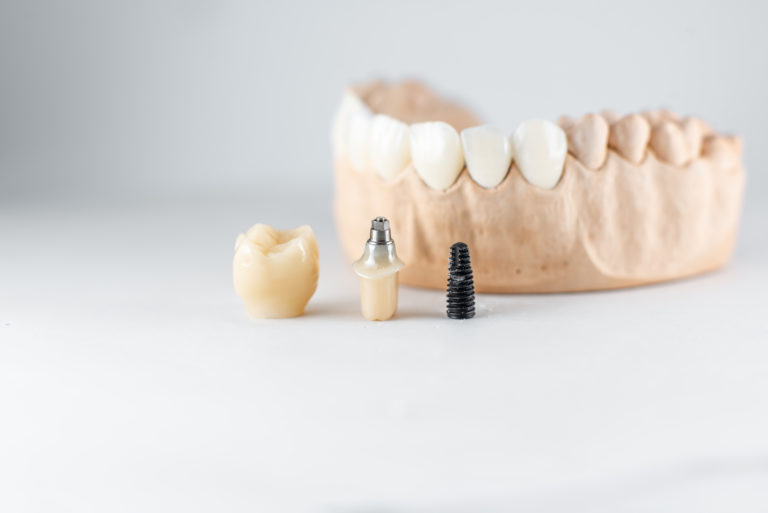At Dr. Loren Grossman’s dental practice in Kingston, we pride ourselves on staying at the forefront of cosmetic and general dentistry. One of the most transformative treatments we offer is dental implants. In this article, we’ll delve deep into the world of dental implants, exploring their composition, unique features, longevity, and care.
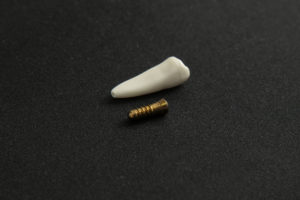
What are Dental Implants?
Dental implants are artificial tooth roots made of titanium or zirconium that provide a strong foundation for fixed or removable replacement teeth. They are surgically placed into the jawbone, where they fuse with the bone over time. This fusion, known as osseointegration, ensures that the implant remains stable and can support a crown, bridge, or denture. The concept of dental implants isn’t new. Ancient civilizations used various materials, from bamboo pegs to metal alloys, to replace missing teeth. Modern dental implants, as we know them, began development in the 1950’s when researchers discovered titanium’s ability to fuse with bone.
Materials Used for Dental Implants
There are primarily two materials used for dental implants:
- Titanium: This metal is biocompatible, meaning it’s accepted by the body without causing any allergic reactions. Titanium implants have been in use for decades and have a proven track record of success.
- Zirconium: A newer material in the world of dental implants, zirconium is a ceramic that boasts similar biocompatibility to titanium. It’s often chosen for its tooth-colored appearance, making it a more aesthetic choice for patients concerned about metal showing through their gums.
Longevity of Dental Implants
With proper care, dental implants can last a lifetime. The crown or denture atop the implant may need replacement after 10-15 years due to wear and tear, but the implant itself can remain stable and functional for decades. Factors that can influence longevity include oral hygiene, regular dental check-ups, and avoiding habits like smoking.
Osseointegration: The Fusion of Dental Implants With Bone
Osseointegration, derived from the Greek word “osteon” meaning bone and the Latin word “integrare” meaning to make whole, is a fundamental process in implant dentistry. It refers to the direct structural and functional connection between living bone and the surface of a dental implant.
How does Osseointegration Occur?
- Immediate Post-Surgical phase: After the dental implant, typically made of titanium, is surgically placed into the jawbone, the body’s initial response is to form a blood clot around the implant. This clot lays the foundation for the healing process.
- Inflammatory phase: The body’s immune system sends inflammatory cells to the implant site to remove any potential contaminants. This is a natural response to any surgical procedure.
- Granulation tissue formation: Following the inflammatory phase, cells called fibroblasts and capillaries start to invade the surgical site, forming what’s known as granulation tissue.
- Bone Formation: Over time, osteoblasts (bone-forming cells) move in and start producing new bone. This new bone begins to grow and spread, eventually making direct contact with the implant’s surface.
- Bone remodeling: As the bone matures, it undergoes a process of remodeling where osteoclasts (bone-resorbing cells) and osteoblasts work in tandem to shape and strengthen the bone around the implant.
Why do Dental Implants Fuse with Bone?
- Material composition: Titanium, the primary material used for dental implants, is biocompatible. This means it’s not harmful or toxic to living tissue and doesn’t cause an immune response. As a result, the body doesn’t reject the implant, allowing for the fusion to occur.
- Implant surface: Modern dental implants often have a roughened surface, which increases the surface area and provides more space for bone cells to adhere and grow.
- Stability: For osseointegration to be successful, the implant must be stable. Any movement during the early stages of healing can disrupt the process. This is why dentists often recommend a healing period after placing an implant before attaching the final crown.
- Bone’s natural healing ability: The bone has an inherent ability to heal and regenerate. When there’s an injury or surgical site, the bone naturally works to repair the area. The dental implant acts as a scaffold, providing a structure for the new bone to grow around.
Unique Features of Dental Implants
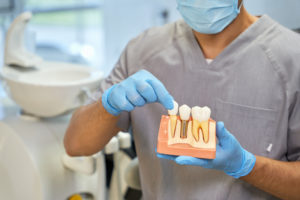
- Natural appearance: Dental implants, especially when topped with high-quality crowns or dentures, mimic the appearance and function of natural teeth.
- Bone preservation: Unlike other tooth replacement options, dental implants prevent bone loss in the jaw, maintaining facial structure and preventing the “sunken” appearance that can occur with tooth loss.
- No Impact on adjacent teeth: Dental implants stand alone, meaning they don’t rely on neighboring teeth for support, preserving the health of the entire mouth.
When do People Need Dental Implants?
Dental implants are an ideal solution for individuals who:
- Have one or more missing teeth.
- Are unable to wear dentures.
- Want to improve their speech or eating capabilities.
- Desire a more permanent and natural-looking tooth replacement option.
Caring for Your Dental Implants
Taking care of dental implants is similar to caring for natural teeth:
- Regular brushing and flossing: This removes plaque and prevents gum disease, which can compromise the stability of an implant.
- Regular dental check-ups: Visiting your dentist in Kingston regularly ensures that any potential issues are caught early.
- Avoiding hard foods: Chewing on hard items like ice can damage the crown atop the implant.
Post-Operative Care for Dental Implants
Ensuring proper care after dental implant surgery is crucial for the success and longevity of the implant. Here’s a detailed guide on how to care for your dental implant post-surgery:
- Pain management: Some discomfort and pain are expected after the surgery. Over-the-counter pain relievers, as recommended by your dentist, can help manage this pain. In some cases, your dentist might prescribe stronger painkillers.
- Swelling and bruising: Swelling is a common post-operative symptom. Using a cold pack on the cheek near the surgical site in intervals (20 minutes on, 20 minutes off) can help reduce swelling. Some patients might also experience bruising, which should fade within a week.
- Oral hygiene: While you should avoid directly brushing the surgical site for the first couple of days, it’s essential to keep your mouth clean to prevent infection. Rinsing with warm salt water several times a day can help. After a few days, you can gently brush the area with a soft-bristled toothbrush.
- Diet: Stick to a soft food diet for the first few days to avoid putting pressure on the implant site. Foods like yogurt, mashed potatoes, soups, and smoothies are ideal. Avoid hot, spicy foods and anything hard or crunchy.
- Avoid physical activity: It’s recommended to rest and avoid strenuous physical activity for at least 48-72 hours post-surgery. This helps reduce swelling and bleeding.
- No smoking: Smoking can inhibit the healing process and increase the risk of complications. It’s best to avoid smoking for at least a week after the surgery, if not longer.
- Avoid alcohol: Alcohol can interfere with the medications prescribed and the healing process. Refrain from consuming alcohol for at least 48 hours post-surgery.
- Regular check-ups: Attend all scheduled follow-up appointments so your dentist can monitor the healing process and ensure there are no complications.
- Report any unusual symptoms: While some pain, swelling, and bruising are expected, if you notice excessive bleeding, severe pain, or any signs of infection (like pus or increased redness), contact your dentist immediately.
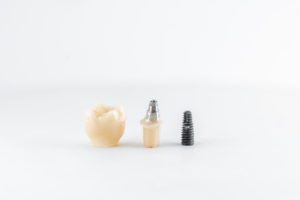
Conclusion
Dental implants have revolutionized the field of dentistry, offering a durable and natural-looking solution for those with missing teeth. From understanding the intricate process of osseointegration to ensuring proper post-operative care, it’s evident that the journey of getting a dental implant is a blend of science, art, and dedicated care. At Dr. Loren Grossman’s dental practice in Kingston, we pride ourselves on providing top-tier dental implant services, ensuring that every patient walks away with a renewed smile and confidence. If you’re considering dental implants or any other dental procedure, we invite you to explore our services and witness firsthand the transformative power of modern dentistry.


